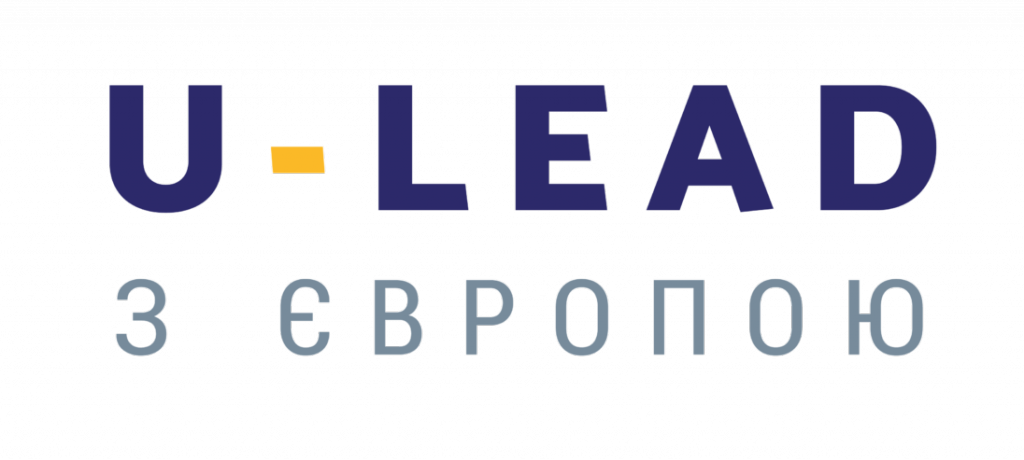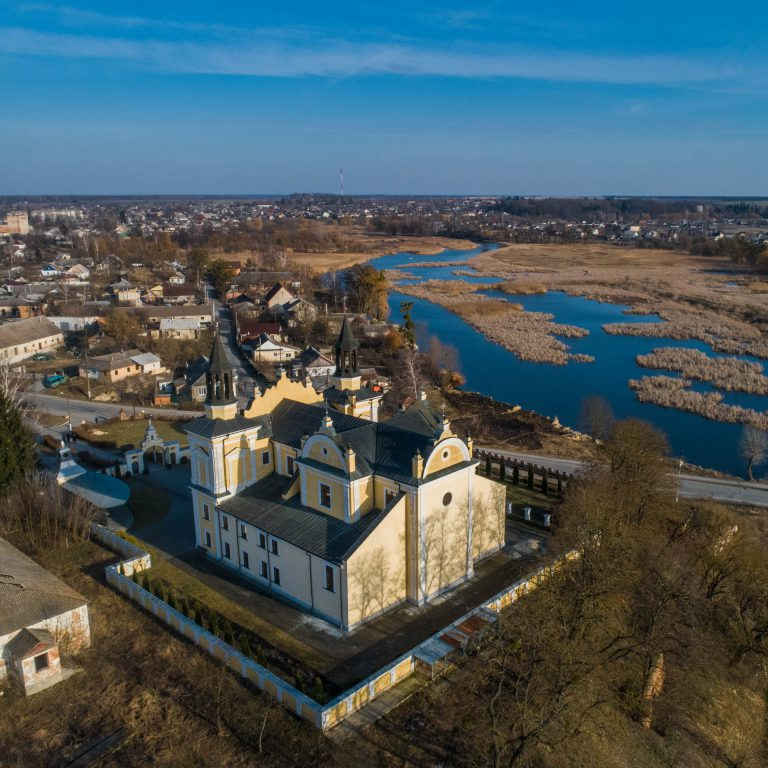Over the past years, Polonska Hromada has received resources for development they could not dream of before. In 2018, a modern Administrative services center, designed by renowned Ukrainian architect Victor Zotov, was built here. The Hromada is working on the installment of the sewage treatment facility that will soon provide residents with drinking water from the Khomory river. Together with experts on spatial planning, Polonska Hromada is working on a long-term development strategy aimed at the tourism potential of the region and restoration of porcelain manufacturing.
Polonska Hromada (hereinafter – Hromada) was formed in October 2015. It comprises of the town Polonne and 29 villages. Overall, the Hromada population numbers 34 thousand people.
Polonne is located in Volyn, 100 km away from Khmelnytskyi. It is an ancient town that dates in the records back to the year 996. Well-developed industries in the city are textile, clothing and footwear industry, food production and construction sector. From the end of the 19th-century porcelain production used to operate in Polonne. The production decayed ten years ago and the city management is searching for opportunities to revive the industry.
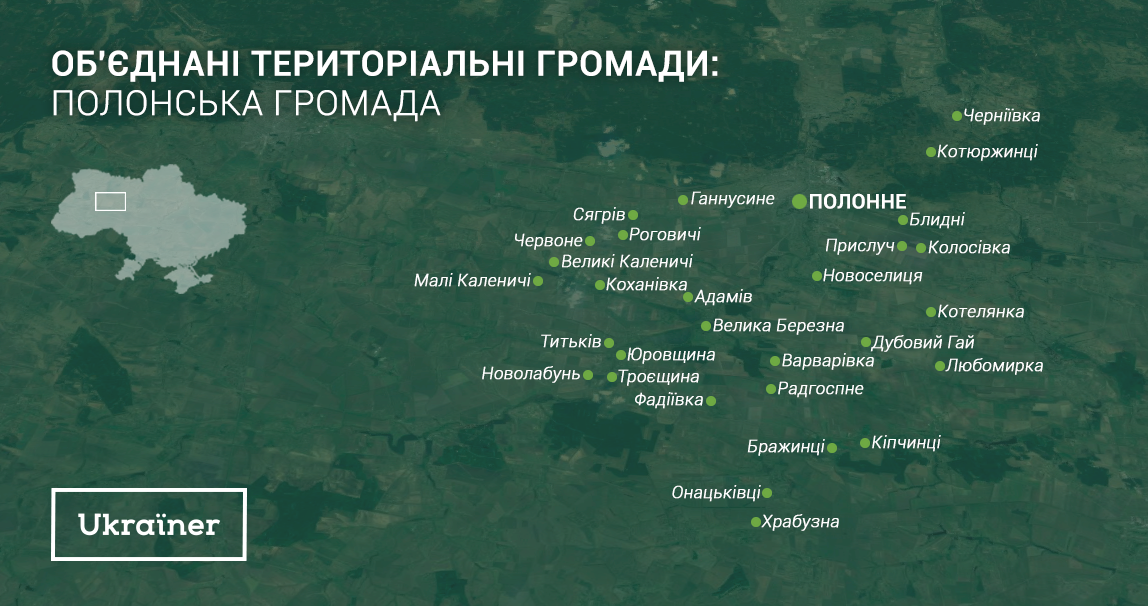
The main street of Polonne carries the name of Lesia Ukraiinka. She had visited this town back in 1893 when visiting her uncle Hryhoriy Kosach. The head of the Hromada Franz Skrymskyi says that after the Hromada formed they decided to have a major repair of this street and they have already held a competitive tender for road reconstruction:
— The town Polonne is more than 1021 years old and I believe it deserves a fine infrastructure. I would like all Polonne region to have well-organized parks, recreational areas, and operating production and people receiving good salaries…

Franz Skrymskyi told us that all community participated in rebuilding recreation park in Polonne. In addition to state financing, local entrepreneurs committed financially to support the project:
— All area was covered with weeds. There were some head shakers saying “He will just cut down the trees and that’s it.” But believe me, we used near one million hryvnias and just ninety-two thousand were budget money. The rest of the amount was the sponsors’ money. Nowadays, we have all this beauty around us. Unfortunately, there are a lot of people that are skeptical about the country on the whole but we try to come up with examples that demonstrate improvements around us and plenty of opportunities to seize. We are planning to build a tennis court and a small recreation area for youth.
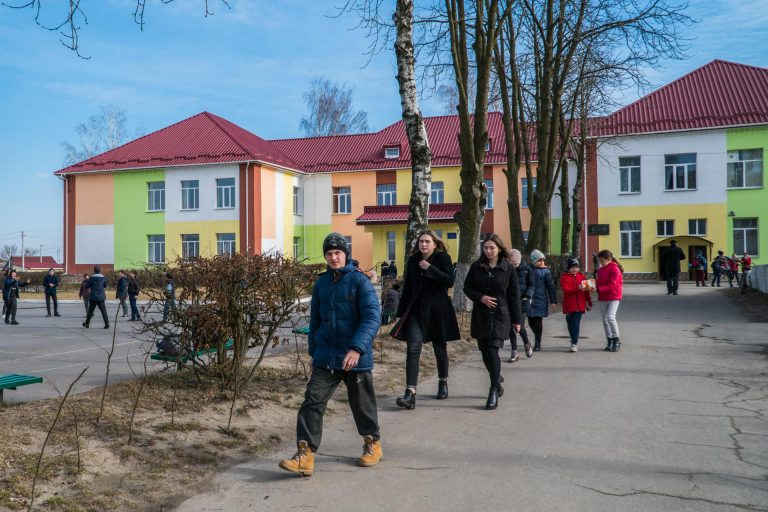
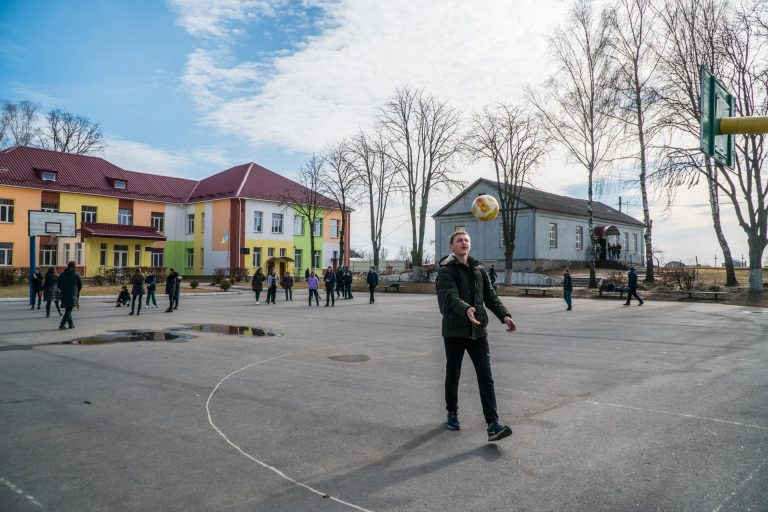
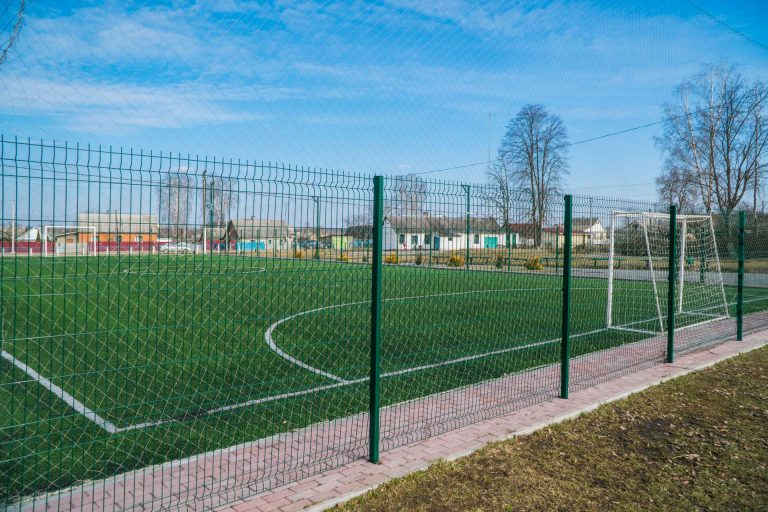
slideshow
The Hromada had allocated funds for the renovation of school #3 that was in a very poor condition in the past. Reconstruction works included a brand new football field with artificial turf, insulation of the school building and renovation works inside the building. A private corporation had partially financed this project:
—We don’t have major sponsors. We approach all entrepreneurs. We deliver a report on every penny used both in print press, on television and during briefings. In the beginning, when I just came into the office I was frequently asked whether I would attempt to shut down businesses, whether there would be some limitations for entrepreneurs? My position was very straightforward: I have some experience in agricultural entrepreneurship. I stand with entrepreneurs. You can’t kill the goose that lays the golden eggs. You have to take care of it. That’s why we do take care of businesses since they fill our budget.
— Do you know why so many people come forward? Because they see that we work transparently.

Administrative services center
In spring 2018 a new Administrative services center opened in Polonska Hromada. (ASC). An architectural bureau ZOTOV&CO designed the building. It was constructed within 4 months with the implementation of energy-efficient technologies. It will help the Hromada to save half the energy used on heating of regular administrative premises. Furniture, office appliances, and professional software for the center was provided by the Program “U-LEAD with Europe”. The head of Hromada Franz Skrymskyi says that the Center creates 11 workplaces and provides 160 services.
— Local people gave the Center a nickname “stiekliashka” (from Russian “piece of glass” — tr.). It was designed in a modern European style. You can ask any ordinary inhabitant of Polonne and they will respond to you that they couldn’t have even imagined the Center of this kind would ever operate in our town. At this point, we are going to fund a purchase of equipment to issue international passports. I believe that the reforms currently conducted in Ukraine can trigger our transformation into a real European state.
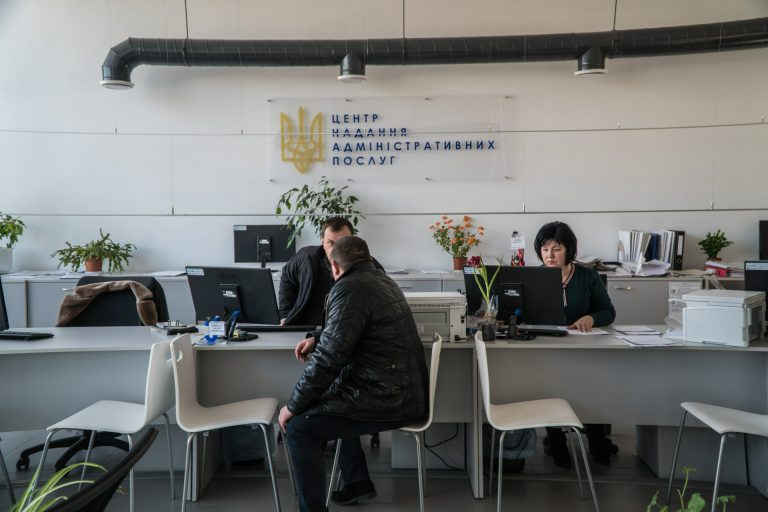
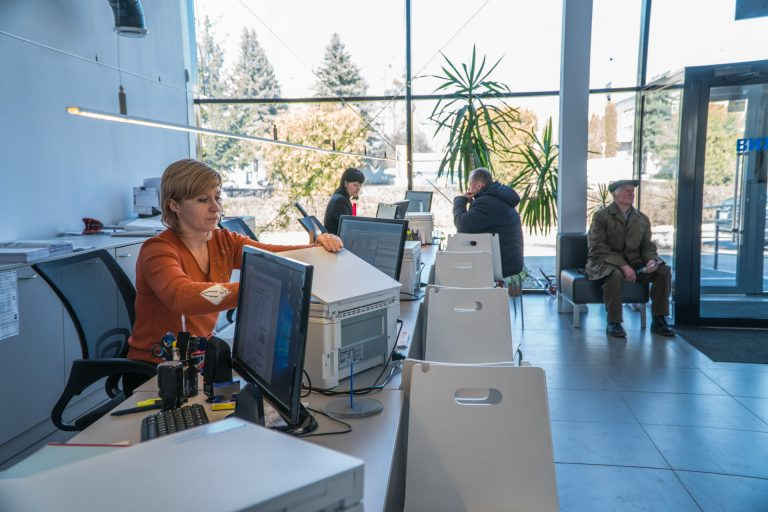
slideshow
The Head of the Services Center Tetiana Karnafel told us that she came to work in the Hromada after its formation and she has noticed a lot of changes over this time. According to her, people get services promptly and in addition, there are hardly any lines in the Center:
— People come, get the required service and leave. There are cases when there are more customers and more applications. The building is great and the services are provided without delays. We organized the process so that residence registration is done not by an administrator, so people don’t need to come here a couple of times. If they have all the required papers and the property owner, the registration takes 20 minutes. Depending on how quickly all the receipts are paid the whole procedure lasts half an hour. The certificate is issued in 3-5 minutes. It’s convenient and people are content.
— The most popular service is the residential registration.
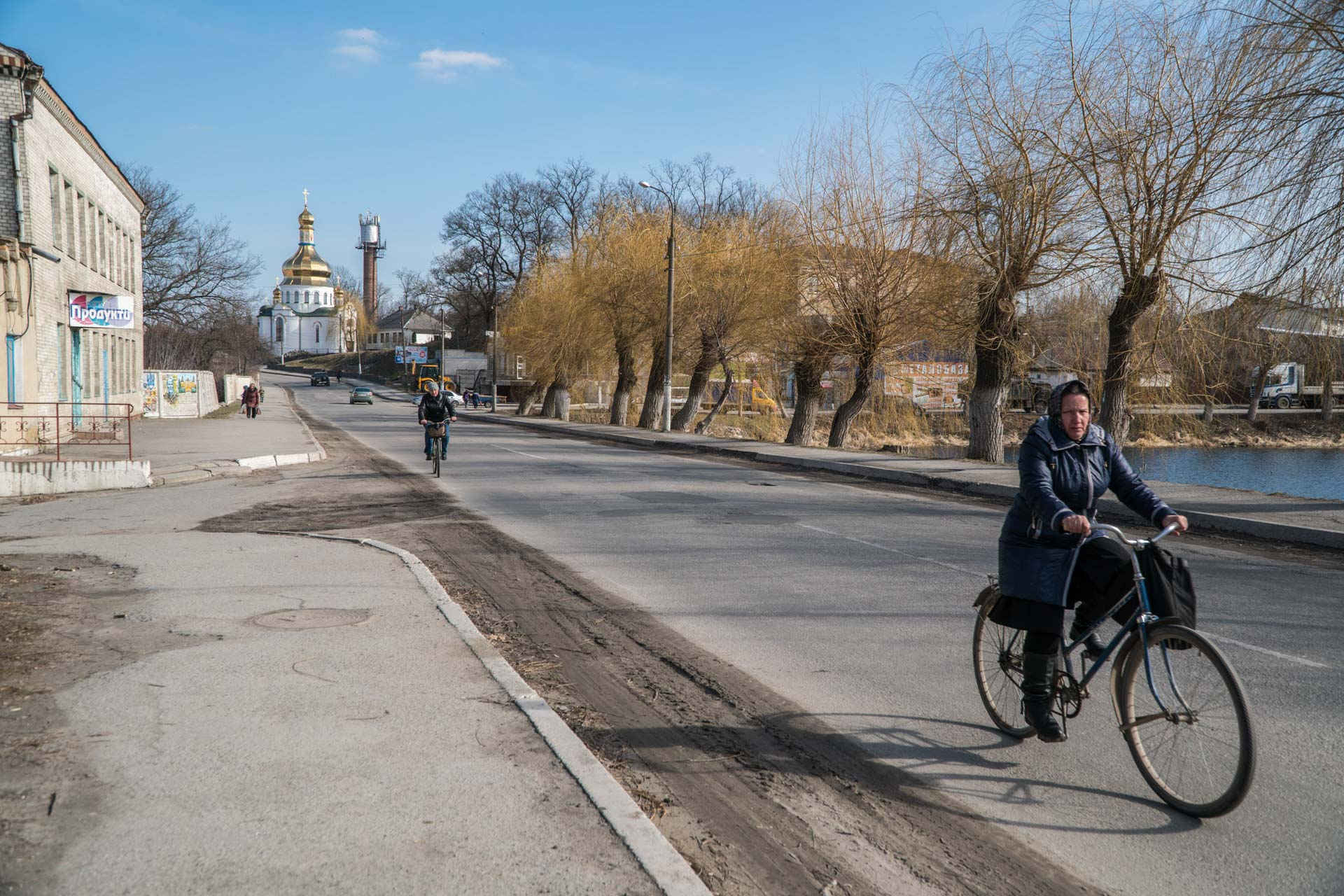
Local enterprises
Polonsk porcelain factory was founded in 1889. During the years of Ukraine’s Independence, the factory became unprofitable due to lack of new equipment and investments, in 2008 the production stopped for good. The head of the Hromada Franя Skrymskyi says that they are in the process of negotiations with potential investors to revive this business:
— The factory was literally scattered around. We attracted an investor, it is a Ukrainian company Golden Tile Ceramic Group. The CEO came into my office and said: “I want to help your Hromada to develop.” I answered: “Very well. Our Hromada is open for investment opportunities.” We have a transparent procedure for preparation of paperwork, we provide a plot of land for purchase during the city council session so that it was clear that the person is an owner and can build on their land whatever they feel like. The whole package of papers is ready and the full-scale construction of the modern European factory starts in May and will produce tiles. The enterprise will have 360 workplaces and will build accommodations for the employees. In order to attract young specialists, you have to provide them with accommodations and good salary.

Franz Skrymskyi says that currently the Hromada’s budget is filled by agricultural sector rather than businesses. The Hromada is working on restoring to operational condition Polonsk mining plant, that carries debt and stopped operating in 2015:
— The plant went bankrupt, unfortunately, and seized operation, it used to produce one million tons. Its turnover meant roads and construction capacities of our Hromada, we need productions of this kind just like air. That’s why we keep working on restoring its operation. One of the factors that plays against us and doesn’t let us move forward is that the plant is owned by a citizen of Russia. You know what kind of relationship we currently have with Russia but we will proceed with attempts to solve this issue.

At the beginning of the 1990s, Franz Skrymskyi opened a farm business and handed it over to his son Ruslan in 2014. The head of Hromada says that he decided to participate in special elections in order to develop Polonshchyna through the engagement of business and investments:
— Today we realize that investments have a direct influence on infrastructure development. If there are investments, it means there will be taxes, if taxes are paid there will be a good salary for public officials, doctors, and teachers. When I am reproached with the fact that Ukrainians, including Polonne inhabitants, go to work in Poland and I answer them: “Let them go, let them study and gain experience, earn money and come back to develop business in Ukraine”. We have cases when the young family went to Poland, they worked there for five years, then returned, opened a business and successfully operate it. Is it a bad result? I think it’s not. It is great when we get better knowledge and then implement it.
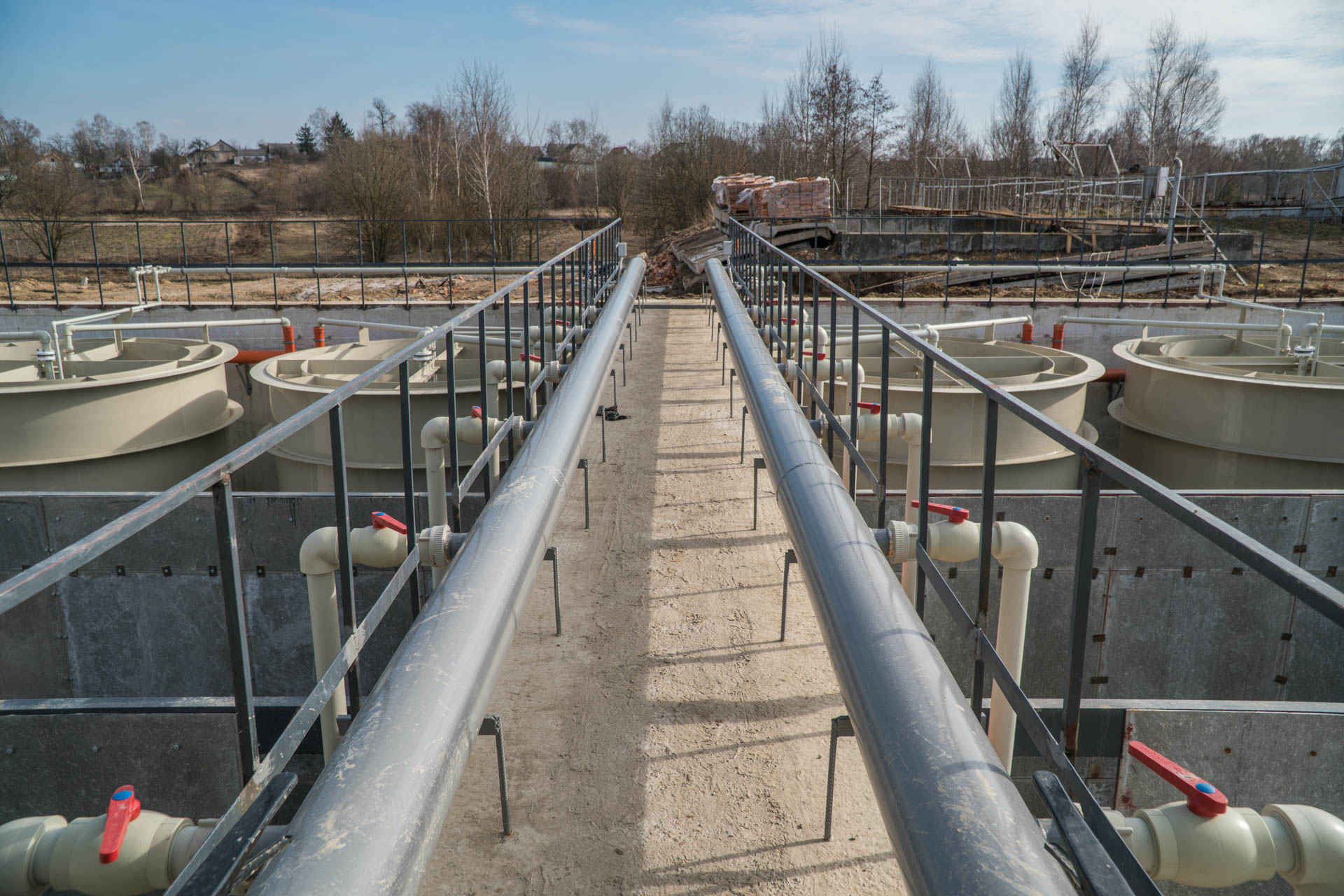
Clean Water
Polonne water system was built half a century ago. The town gets water from Hamarnianskyi reservoir located on the left bank of the river Khomory. The water quality in the town was very poor mainly due to worn-out pipes and heavily polluted reservoir that wasn’t cleaned since the times it had been created. The greater part of state subsidies for the development of infrastructure is spent on the repair works of the water system and cleansing of Khomora river:
— All resources from the state fund have to be co-financed from the town budget by 10%. There are projects that we financed by 13-15% because we were interested in taking the issue off the table. There were many politicians and town residents that were very skeptical about the water system because in the past this project had been started many times and never had been finished. We have been building it for two years. We install modern plastic Ukrainian pipes that have 50 years guarantee.
— We will do everything for the Polonne inhabitants to understand that forming the Hromada was crucial and they will have good quality drinking water at the beginning of 2020.
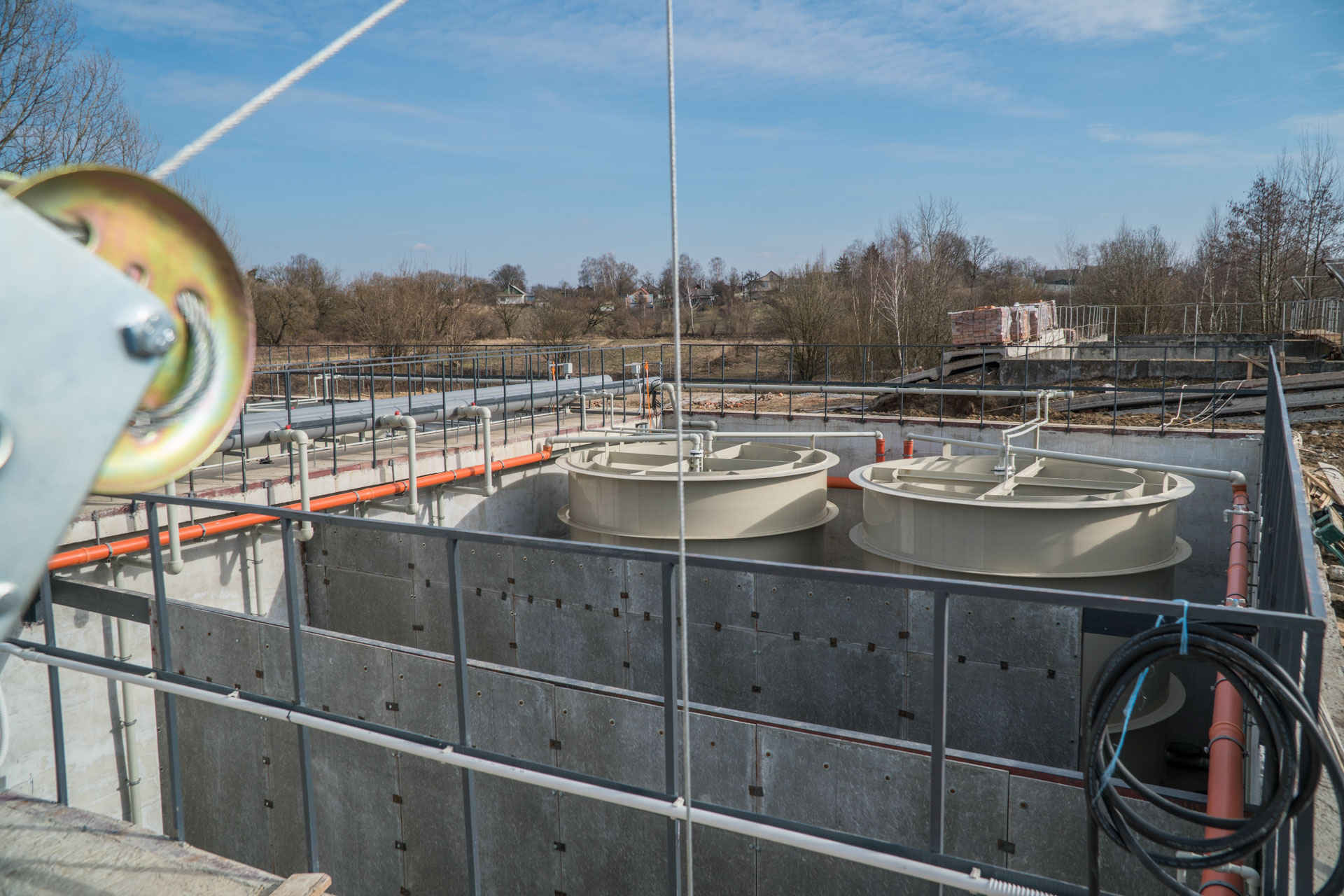
Franz Skrymskyi explains that the waste treatment facilities are important both for inhabitants well-being and for local enterprises. The renewed facilities will be able to intake a bigger quantity of sewerage and special bacteria will clean the water that will go back into Khomora river:
— The old filtration system was out-of-date and outlived its usefulness. You know how many detergents use people nowadays in each family. The old filters were not able to process wastes like that, so now the new system with bacteria will clean water from all pollution. We could only dream about it before the Hromada had formed.

Medicine
As of 2018, the Polonska Hromada has 8 medical and obstetric stations that cover primary health care needs. According to the head of Hromada 87% of the population have signed agreements for medical care services:
— Nowadays, a doctor that used to have a salary of 5600 hryvnias, has a net salary of 18 000 hryvnias. I want to tell you that it is substantial for a doctor. It’s all now in medical professionals’ hands to demonstrate that the reform is viable and working. We strongly insist on having high-quality medical services in rural areas.
— Our main tasks are to provide energy supply and necessary medication. In this case, both people and doctors will see the difference.
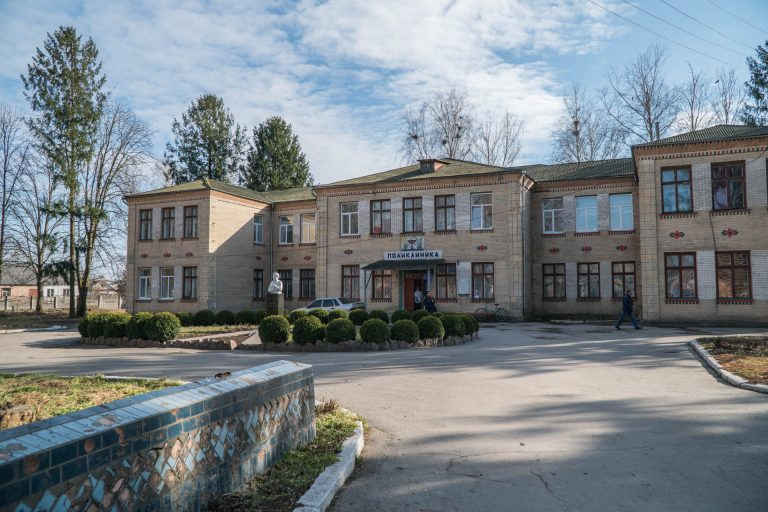
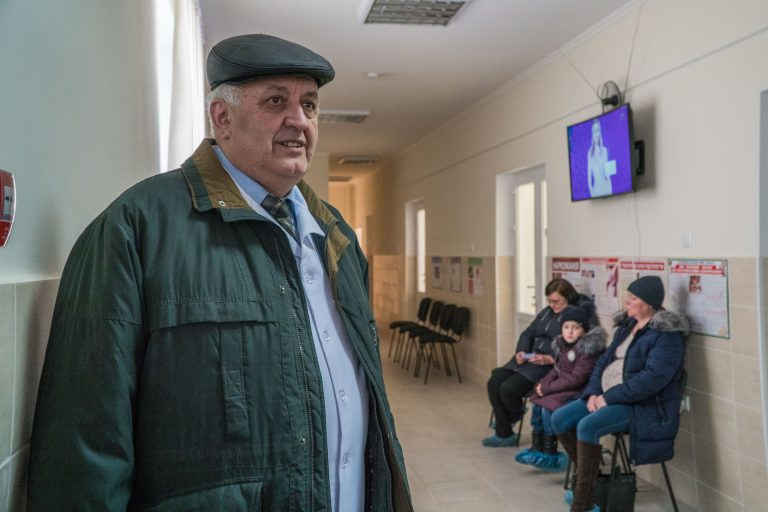
slideshow
In 2018 a medical center got opened in Polonska Hromada, where Hromada inhabitants can be examined and diagnosed. Franz Skrymskyi explains that they decided not to disperse state subsidy provided for medical needs on small projects, but rather to create a fully equipped medical center from a scratch and to provide medical services free of charge.
Chief doctor of the center of primary health care Ivan Simchera says that since April 2018 there were a lot of changes. Today the center works as a municipal non-profit enterprise. The National Health Service and the City Council are main sources of financing of the institution:
— Financing doubled since we transferred to the National health service structure. Majority of our doctors have signed a maximum number of declarations: from 1800 up to 2000. Our institution is unique because we consolidated the whole rayon (the second level of administrative division in Ukraine). Due to the consolidation, we are able to support ambulant clinics that have fewer declarations and finances. This way we create more or less equal conditions for everyone. Our center is one of the best in the oblast both from the standpoint of financing and level of salaries.
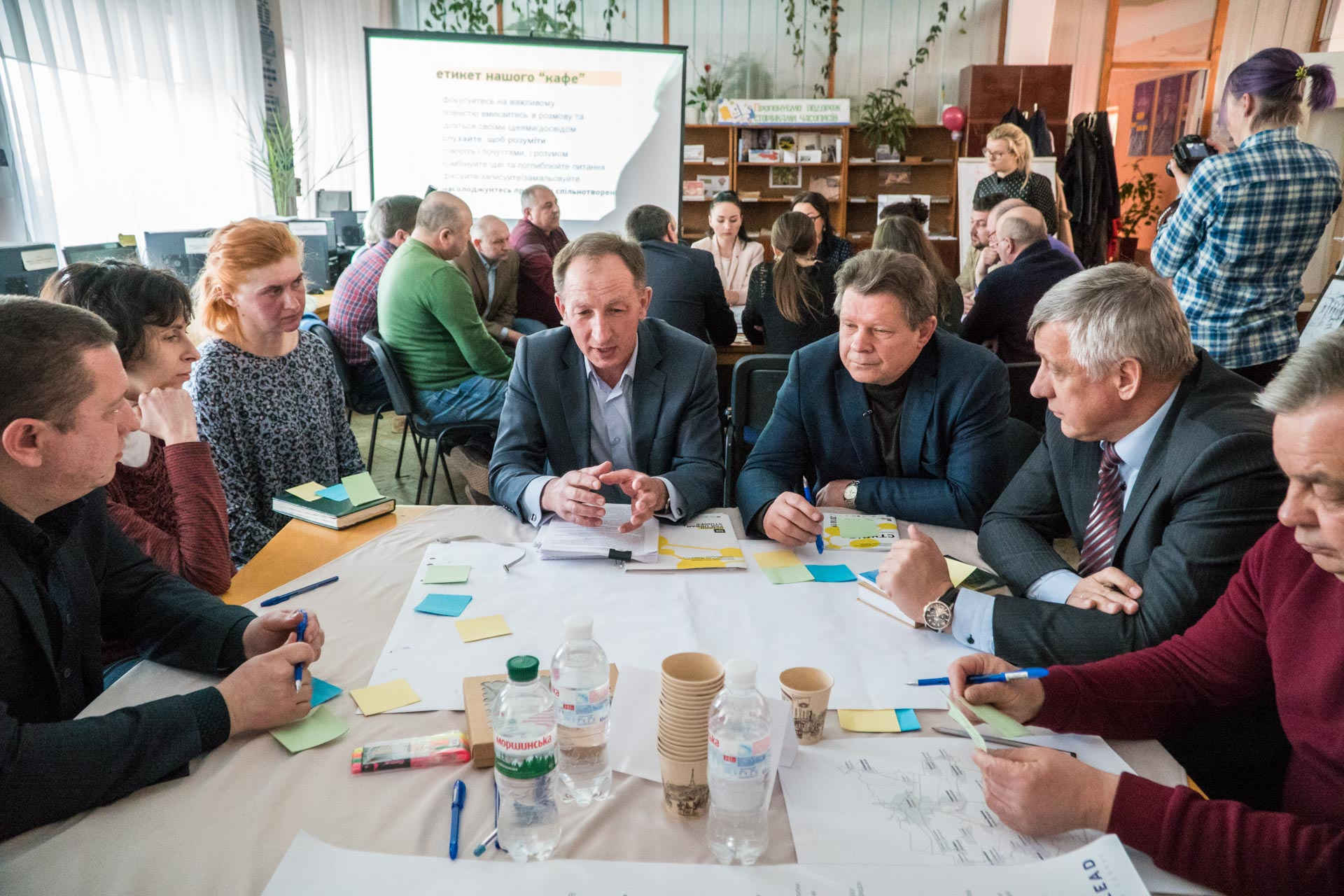
Hromada’s strategy of development
In autumn 2018 Polonska Hromada pre-qualified to participate in a free applied program “Integrated Spatial Planning for Amalgamated Hromadas”. Within the program framework, created by the educational institution CANactions School of Urban Studies, the Hromadas’ representatives work on plans of development for their areas. It is expected that the Hromadas representatives will define strategic priorities of Hromada development for 10-15 years, analyze their potential and obstacles for the spatial development of settlements within Hromada.
The spatial planning specialist of CANactions School Andrius Nemickas tells us that Polonska Hromada is one out of 30 Hromadas that the experts will help to develop the strategy of development. Each Hromada works with a specialist that will help to define the vision and direction of movement in the future.
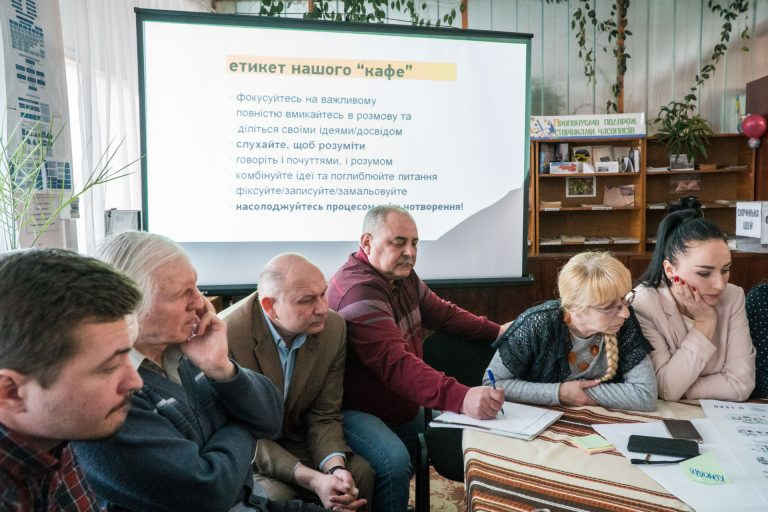
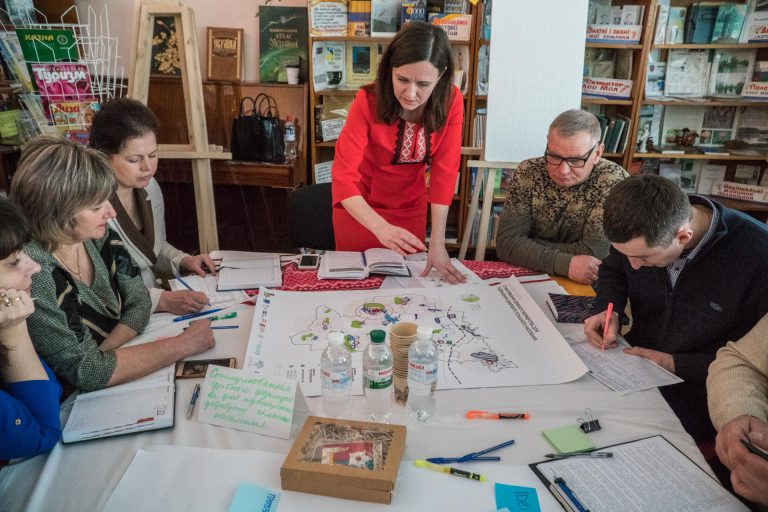
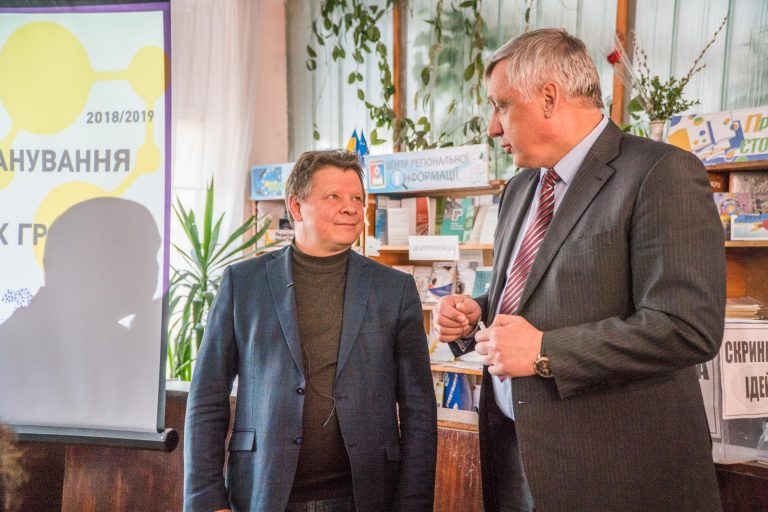
slideshow
— The program started with a kick-off meeting during which we created a common base for mutual understanding and further cooperation. The next stage was an educational trip for the leaders of each Hromada to Sweden in order to familiarize with alternative solutions for similar issues. Having attained basic knowledge and experience, we started a series of 5 monthly workshops, each of them lasts for a week. Right now we are conducting the third workshop. Later on, we will specify our strategies and work on ideas for first pilot projects that can become a driving power for processes. The result of the fifth workshop will be presented at the festival CANactions in Kyiv. In autumn 2019 as a final stage will be held a big conference where all participants get together and will talk about their plans and strategies in a detailed way.
Andrius Nemickas says that Polonska Hromada has passed the selection process due to their energy and dedication. After having analyzed the strong and weak sides of this Hromada, the program participants decided that the strategy of development of Polonska Hromada will consist of three directions: agricultural, touristic and industrial:
— The agricultural part of the strategy is aimed at finding infrastructure solutions to optimize it, reduce expenses and increase profits correspondingly. Along with that, the Hromada is willing to develop local, regional tourism and to create recreational areas; popularize and maintain the historic cultural heritage of this area. The third strategy is aimed at restoration of porcelain production and search of other potential entrepreneurial industries.

The main specialist in architecture and capital development of Polonska Hromada Maryna Dezhefi says that her participation in this program has turned into a great experience. She has already visited Sweden and Denmark as part of the program and now has more data for comparison with her Hromada territory:
— Due to spatial planning, we were able to see all our advantages and risks. There are indicators that show us areas in which the Hromada works actively and where we are passive. It’s very important to comprehend because we will be able to support villages that are decaying and to set them up on the right path. Sweden and Denmark are successful and beautiful countries. However, we aren’t worse. There are aspects in which we are even better, we just need to unite, combine all our initiative, improve communication and work as a team. If we manage to do it, we will be able to implement a lot: we will develop a strategy for years to come and it will bring us success. No matter which direction we choose, there will be problems and conflicts. Some of those problems can’t be solved at once. We can accept them and move towards development gradually.
supported by
Цей матеріал створено за підтримки Програми для України з розширення прав і можливостей на місцевому рівні, підзвітності та розвитку «U-LEAD з Європою», що спільно фінансується Європейським Союзом та його країнами-членами: Данією, Естонією, Німеччиною, Польщею та Швецією.
